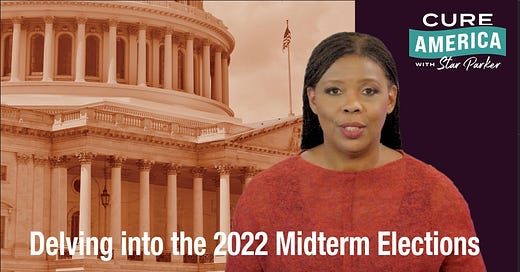In the October 23, 2022, episode of the weekly program CURE America with Star Parker, Jonathan Alexandre of the Liberty Counsel conversed with Parker, Founder and President of the Center for Urban Renewal and Education (CURE), with respect to the attitudes and voting behavior of African Americans.
Citing the CURE Report, Black Opinions and Voting Behavior, Parker noted that 20% of blacks self-identify as conservative, which is higher than the 12% of Democrats that identify as conservative; and that blacks identify as liberal half as much as Democrats (26% to 50%). Some 96% of Republicans are moderate or conservative, as against 49% of Democrats, whereas 71% of blacks self-identify as moderate or conservative. So blacks are ideologically different from Democrats.
Parker and Alexandre maintained that with respect to questions related to faith, religion, and morality, blacks have attitudes more like white Republicans. Most blacks are opposed to abortion without limitat…



